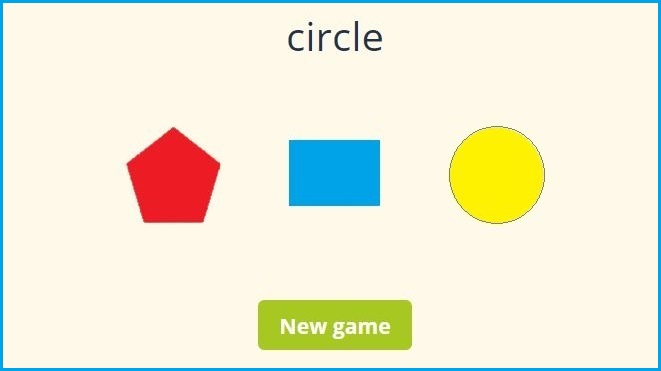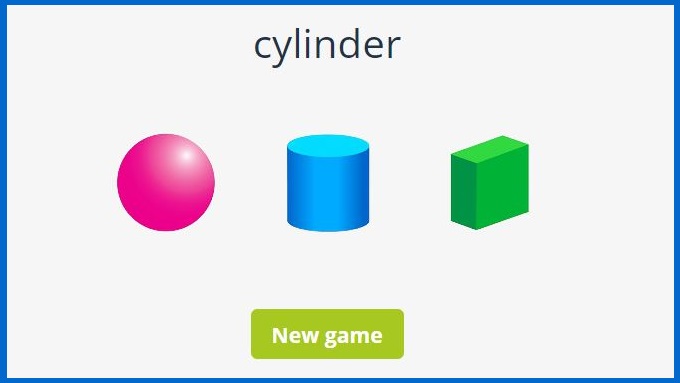Free geometry games PRINTABLE
You can use these printable geometry games in the classroom or at home as an additional geometry practice.
Printable geometry games in PDF
Geometry math games
Geometry math games are a fun and engaging way for students to learn about shapes, angles, and other geometric concepts. Teachers who incorporate online geometry games into math lessons help kids develop a love of learning and a strength understanding of geometry basics.
What is geometry?
Geometry is a branch of mathematics that deals with the properties and relationships of points, lines, angles, surfaces, and solids. It explores the spatial configurations and shapes of objects in both two and three dimensions.
The word "geometry" is derived from the Greek words "geo" (earth) and "metron" (measure),
reflecting its historical roots in surveying and measuring land.
Geometry in math
Geometry is not only a theoretical field but also has practical applications in various fields, including physics, engineering, architecture, computer graphics, and more. It provides a foundation for understanding spatial relationships and has been a critical part of mathematical study for centuries.
Math games on geometry
Our geometry online games cover a broad range of topics that explore the properties and relationships of shapes, sizes, and spaces. Here is an overview of key topics typically included in geometry online games:
Basic geometry ONLINE games
- Points, Lines and Planes: In geometry, a point is a location in space with no size, and a line is a straight path that extends infinitely in both directions. A plane is a flat, two-dimensional surface.
- Angles: An angle is formed by two rays with a common endpoint. Angles are measured in degrees or radians and play a crucial role in various geometric constructions and calculations. Types of angles (acute, obtuse, right, straight).
- Polygons: Polygons are closed figures formed by connecting line segments. Common examples include triangles, quadrilaterals, pentagons, and hexagons. Classification of polygons by the number of sides (e.g., triangles, quadrilaterals).
- Circles: Circles are sets of points equidistant from a central point. The properties of circles involve concepts such as radius, diameter, circumference, and area.
- Area and Perimeter: Formulas for finding the area and perimeter of basic shapes (rectangles, triangles, circles).
- Volume and Surface Area: Formulas for finding the volume and surface area of three-dimensional shapes (cubes, prisms, cylinders, cones, spheres).
- Constructions: Geometric constructions involve creating various shapes and figures using only a straightedge and a compass,
adhering to certain rules. This is a fundamental aspect of classical geometry.
- Transformations: Transformations, such as translations, rotations, reflections, and dilations, are operations that change the position, orientation, or size of geometric figures while preserving their essential properties.
- Coordinate Geometry: This branch of geometry combines principles of geometry with algebra, using coordinates
to represent points and equations to describe geometric shapes.
- Solid Geometry: Solid geometry deals with three-dimensional objects, including polyhedra (such as cubes and pyramids) and objects with curved surfaces (such as spheres and cylinders).
- Geometric Proofs: Geometry often involves proving statements or theorems using deductive reasoning.
A proof is a logical argument that establishes the truth of a mathematical statement.














